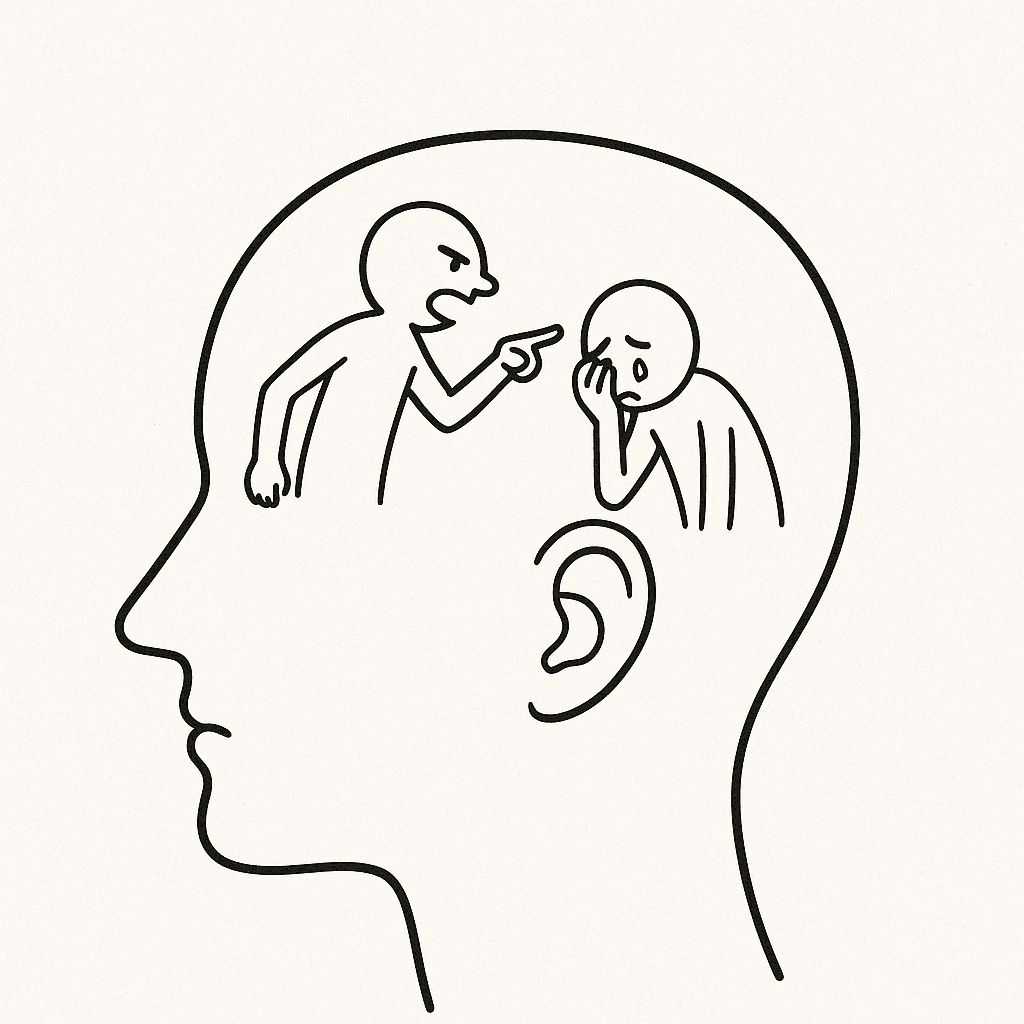Intrusive thoughts can be unsettling, disruptive, and sometimes downright distressing. Whether you’re dealing with anxious thoughts, obsessive worries, or persistent doubts, these thoughts can interfere with daily life, relationships, and mental well-being. At Beyond the Couch Counseling in Grand Rapids, Michigan, we often work with clients who feel trapped by their own thoughts. One of the effective approaches we utilize to help individuals manage and overcome intrusive thoughts is Metacognitive Therapy (MCT). In this post, we’ll explore how metacognitive therapy can be applied to stop intrusive thoughts and improve overall mental health.
What Are Intrusive Thoughts?
Intrusive thoughts are unwanted, involuntary thoughts, images, or ideas that can pop into your mind without warning. These thoughts can range from simple distractions to more disturbing or anxiety-inducing ideas. Many people experience intrusive thoughts, but they become problematic when they start to cause significant distress or lead to unhealthy behavioral responses such as compulsions, avoidance, or constant rumination.
Common themes of intrusive thoughts include:
- Worrying about worst-case scenarios (health, safety, relationships)
- Self-doubt about abilities or decisions
- Unwanted aggressive or sexual thoughts
- Fear of causing harm or making mistakes
These thoughts often lead to heightened anxiety, guilt, or shame, which can affect your mental health and well-being. But it’s important to remember that having intrusive thoughts does not define who you are—it’s your response to these thoughts that matters.
What Is Metacognitive Therapy?
Metacognitive Therapy (MCT) is an evidence-based therapeutic approach developed by Dr. Adrian Wells. The core principle of MCT is that the way we think about our thinking (our metacognition) plays a crucial role in how we manage distressing thoughts, such as those associated with anxiety, depression, or obsessive-compulsive disorder (OCD).
In metacognitive therapy, the focus is not on changing the content of your thoughts, but on changing how you relate to them. The goal is to reduce the impact of negative or intrusive thoughts by altering the thought processes and beliefs that fuel them. In other words, MCT teaches you to disengage from unhelpful thinking patterns, such as rumination and worry, rather than trying to fight or suppress the thoughts themselves.
Key Concepts in Metacognitive Therapy:
- Detached Mindfulness: Learning to observe your thoughts without getting emotionally involved in them.
- Cognitive Attentional Syndrome (CAS): This refers to patterns of worry, rumination, and fixation that make intrusive thoughts worse. In MCT, we aim to break this cycle.
- Metacognitive Beliefs: These are beliefs you hold about your thoughts (e.g., “Worrying helps me prevent danger” or “I need to control my thoughts to feel safe”). MCT works to challenge and change these unhelpful beliefs.
How Intrusive Thoughts Work in the Brain
Intrusive thoughts often trigger a “fight-or-flight” response in the brain. When a distressing thought occurs, your mind labels it as a threat, leading to heightened anxiety and the urge to control or suppress the thought. Unfortunately, attempts to push the thoughts away often make them more persistent—a phenomenon known as the rebound effect.
Metacognitive therapy teaches you to break this cycle by recognizing intrusive thoughts as harmless mental events that do not require immediate action or control. Instead of trying to “fix” the thoughts, MCT encourages acceptance and detachment.
How Metacognitive Therapy Helps Stop Intrusive Thoughts
At Beyond the Couch Counseling, we use metacognitive therapy to help clients in Grand Rapids , Michigan develop healthier responses to intrusive thoughts. Here are some practical strategies from MCT that can help you stop intrusive thoughts:
1. Identify and Challenge Your Metacognitive Beliefs
One of the key steps in MCT is identifying the unhelpful beliefs you hold about your intrusive thoughts. Do you believe that you need to control every thought that enters your mind? Or that thinking about something makes it more likely to happen? These beliefs can keep you stuck in a cycle of anxiety and rumination.
Action Step: Write down the beliefs you have about your intrusive thoughts. Then, challenge those beliefs by asking yourself:
- Is this belief really true?
- How has this belief helped or harmed me in the past?
- Can I see these thoughts as just thoughts, not reflections of reality?
For example, instead of thinking, “If I don’t stop this thought, something bad will happen,” you can remind yourself, “This is just a thought. I don’t have to act on it.”
2. Practice Detached Mindfulness
MCT encourages detached mindfulness, which means observing your thoughts without engaging with them emotionally. The goal is to allow intrusive thoughts to come and go without judgment or reaction. This is different from traditional mindfulness, which often emphasizes being present with your thoughts; detached mindfulness encourages you to take a step back and watch them from a distance.
Action Step: When an intrusive thought arises, try labeling it: “This is just a thought, not a fact.” Imagine the thought as a cloud passing in the sky—acknowledge its presence but let it drift away without holding onto it.
3. Reduce Rumination and Worry
MCT identifies Cognitive Attentional Syndrome (CAS) as a major contributor to anxiety and distress. CAS is a mental state characterized by excessive rumination, worry, and checking behaviors. When you engage in rumination (repeatedly thinking about the same distressing thought), you amplify the emotional intensity of the thought and make it harder to let go.
Action Step: Set a worry time. If you find yourself ruminating over a thought, schedule a specific time of day (e.g., 15 minutes) to worry about it. This technique can help reduce the time spent dwelling on negative thoughts. When the scheduled time is over, move on to other activities.
4. Shift Your Attention
Intrusive thoughts often demand attention, but you have the power to redirect your focus. MCT teaches clients to shift their attention away from distressing thoughts and onto something more productive or enjoyable.
Action Step: When an intrusive thought arises, consciously shift your attention to a task or activity. You can use grounding techniques like focusing on your breath, engaging in a hobby, or connecting with someone you trust. By shifting your attention, you take away the power of the intrusive thought to dominate your mind.
5. Accept Uncertainty
A major component of intrusive thoughts, particularly in anxiety and OCD, is the fear of uncertainty. You may worry, “What if this thought means something bad?” or “What if I can’t control this thought?” MCT encourages the acceptance of uncertainty as a normal part of life.
Action Step: Practice tolerating uncertainty by using affirmations like, “It’s okay not to have all the answers right now,” or “I can live with uncertainty and still be safe.” The more you practice accepting uncertainty, the less control it will have over your mind.
Why Metacognitive Therapy Works for Intrusive Thoughts
Unlike some therapeutic approaches that focus on changing the content of thoughts, MCT shifts the focus to how you think about your thoughts. This detachment from the content helps reduce the emotional intensity of intrusive thoughts. Over time, you learn that thoughts are not dangerous, and you don’t have to react to every thought that enters your mind.
How Beyond the Couch Counseling Can Help
At Beyond the Couch Counseling, we are committed to providing the Michigan community with effective, evidence-based therapies to address mental health concerns like anxiety, OCD, and intrusive thoughts. Our experienced therapists can guide you through the process of metacognitive therapy, helping you gain control over your mind and reduce the impact of intrusive thoughts on your daily life.
We understand that intrusive thoughts can feel overwhelming, but you don’t have to face them alone. If you’re interested in learning more about metacognitive therapy or scheduling an appointment, contact us today. Together, we can help you regain peace of mind and find a healthier way to relate to your thoughts.
Have You Read Something That Helped You?
We’d love to hear your thoughts and recommendations! If you’ve read any helpful books or articles on mental health or have personal strategies for managing intrusive thoughts, feel free to email us at admin@beyondthecouchcounseling.com. Looking to schedule a free 15-minute phone consultation? Click here.







